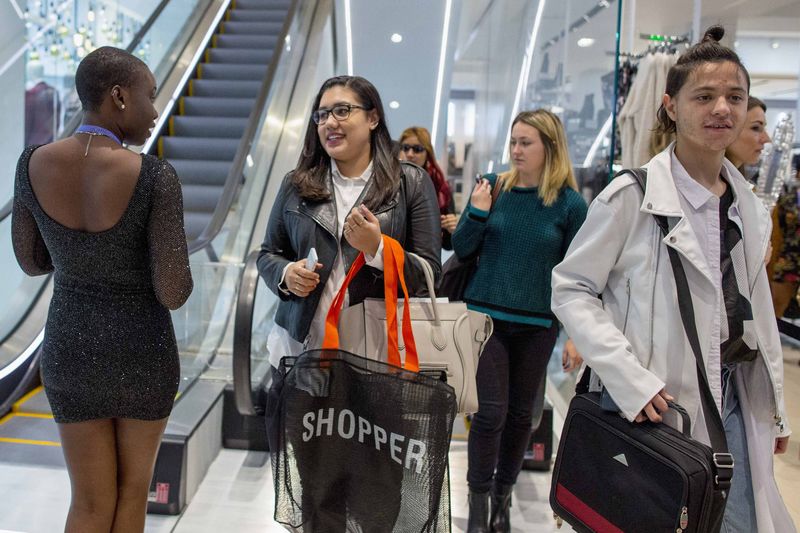Investing.com – Levi Strauss led the slump in apparel stocks Tuesday after Goldman Sachs (NYSE:GS) signaled it was time to move out of apparel brands who rely on department stores to flog their branded merchandise amid fears that increasingly unfashionable performances await in the second half of the year.
Goldman Sachs cut its ratings on Levi Strauss, Ralph Lauren and PVH, parent company of brands like Calvin Klein and Tommy Hilfiger, to sell from neutral, triggering selling across the sector.
Levi Strauss (NYSE:LEVI) fell 5.6%, Ralph Lauren (NYSE:RL) 4.5% and PVH (NYSE:PVH) 3.5%.
The bank warned that several multibrand retailers were laden with more merchandise than they're able to sell amid overly optimistic expectations for spring demand and a tough first half.
"The combination of persistently tough first-half retail trends and an optimistic spring ordering season has driven inventory overhangs at several multibrand retailers," the Goldman note said.
The dour second-half outlook comes ahead of the key back-to-school shopping season, with the investment bank warning of increased pressure on brands that shift high volumes of their clothes through department stores.
"These retailers are thus tightening up ordering as we head into the critical back-to-school and holiday season. We thus see incremental sell-in risk for apparel brands, particularly those with high exposure to department stores."
The bank zoned in on the woes facing the trio of downgraded apparel stocks.
Citing Levis' weaker first quarter, Goldman Sachs (NYSE:GS) said the apparel retailer's first-quarter results show it isn't impervious to the sluggish retail backdrop that has weighed on it’s peers margin growth.
At Ralph Lauren, same-store sales are "languishing" amid headwinds in the wholesale market, the bank said.
PVH, meanwhile, is behind the curve when it comes to investment in direct-to-consumer sales channels, so will likely come under pressure as outlets remain an important sales channel.
But not all apparel brands are to face the same second-half fate, Goldman said, as brands that have been investing in building strong direct-to-consumer omnichannel commerce such as Nike (NYSE:NKE) are likely to be more insulated.
"We take a more cautious view on nonathletic apparel brands whose direct-to-consumer businesses are skewed towards outlet stores, particularly given challenged traffic trends in these locations," Goldman said.
